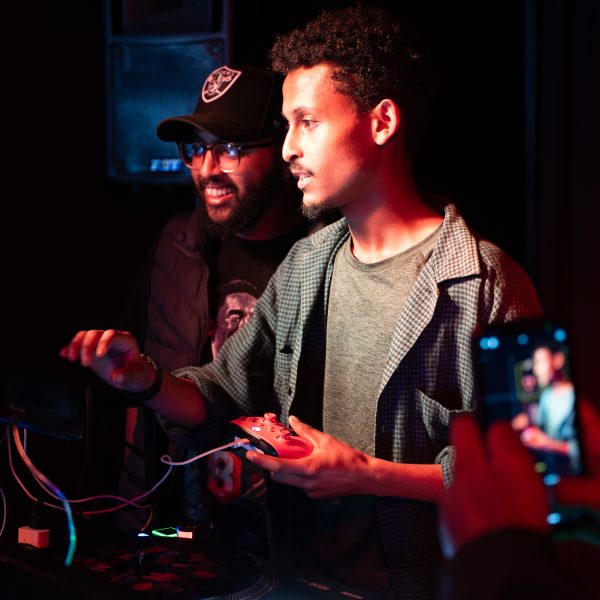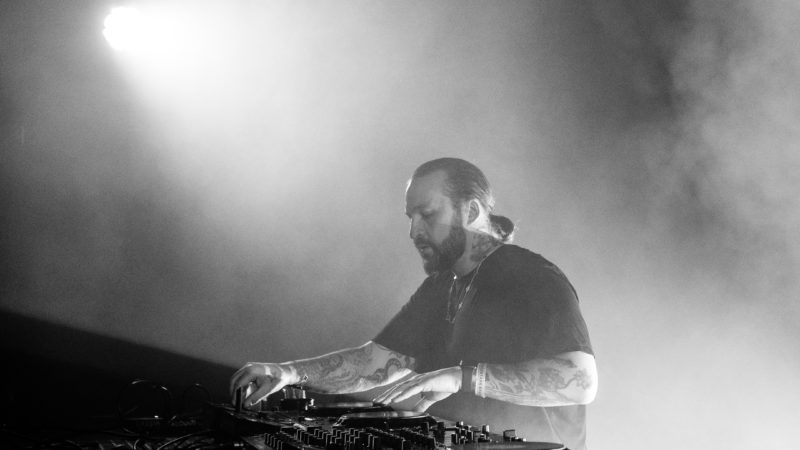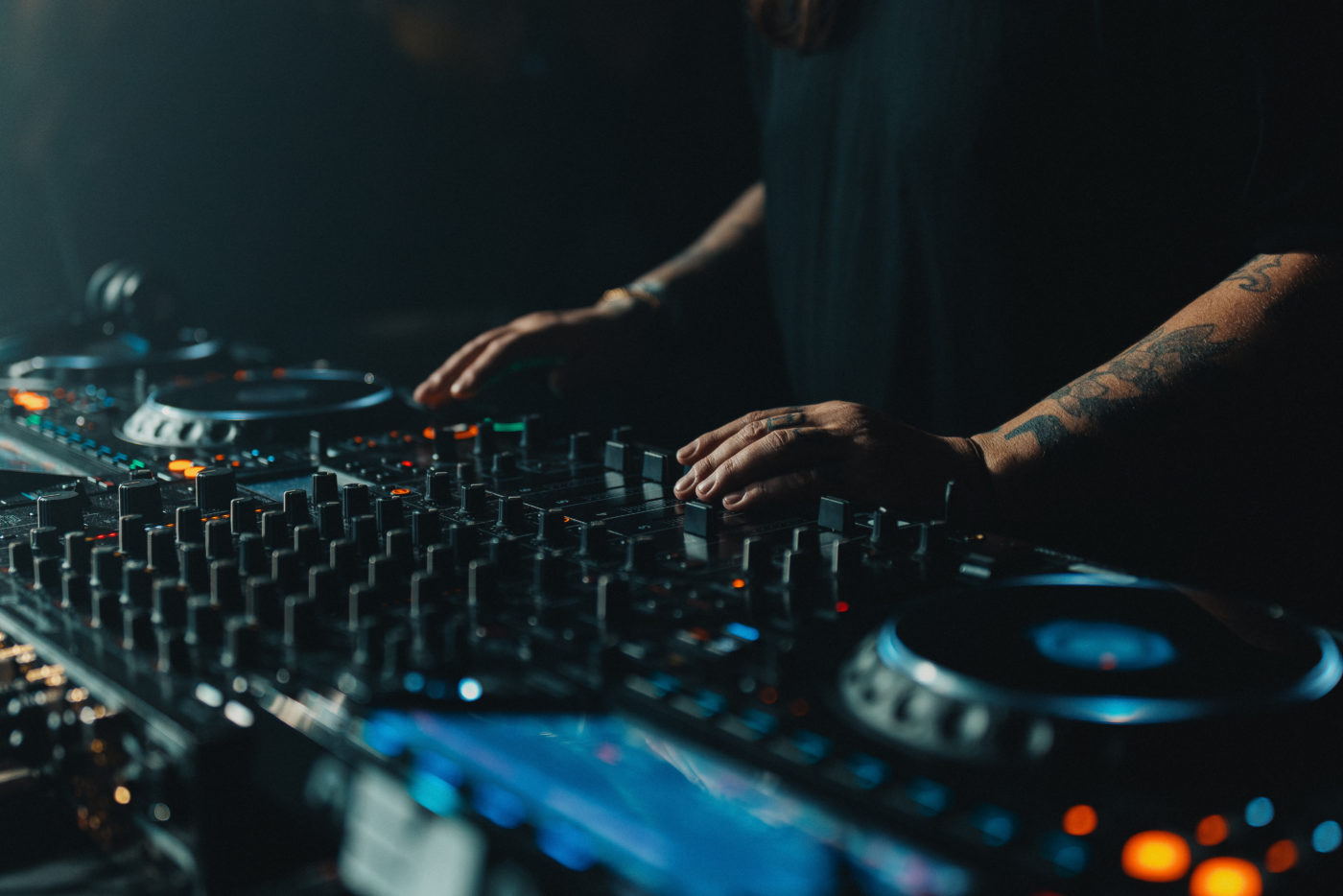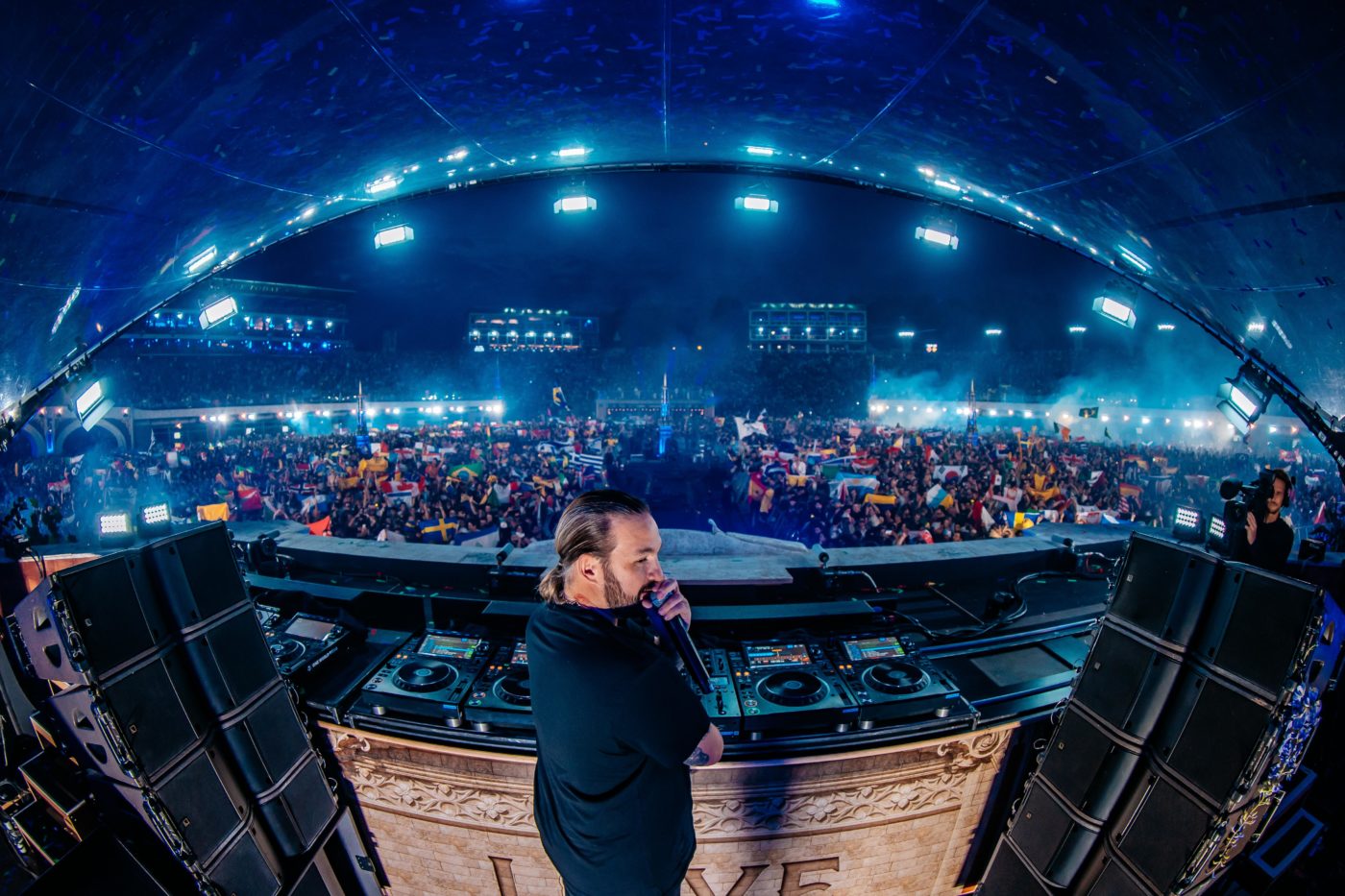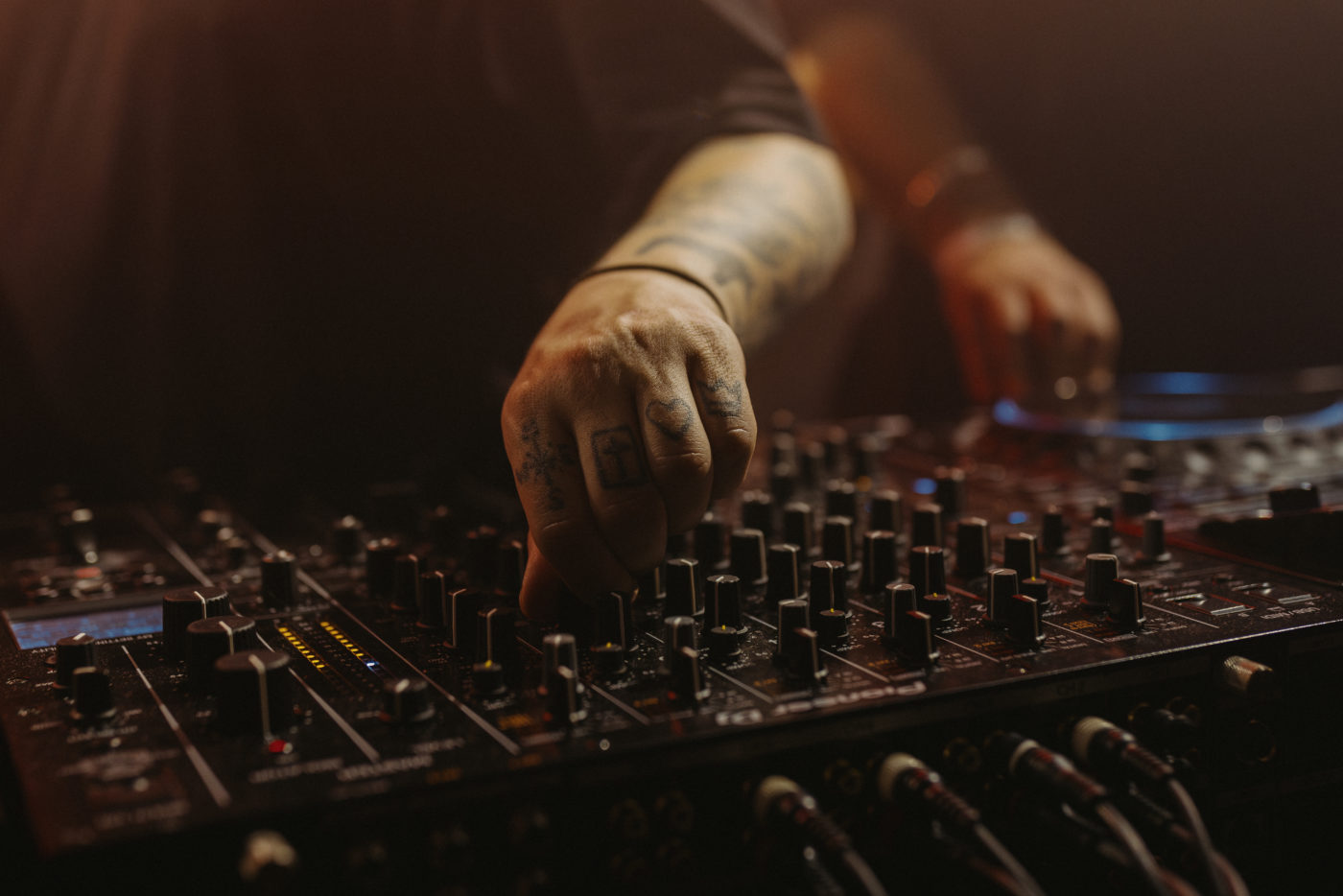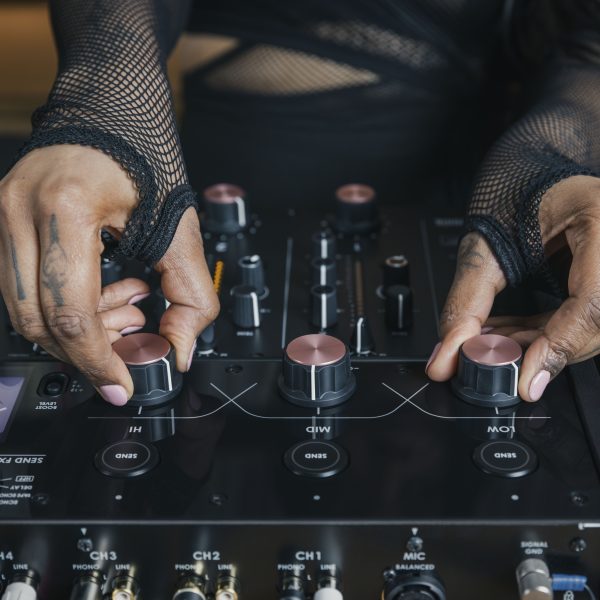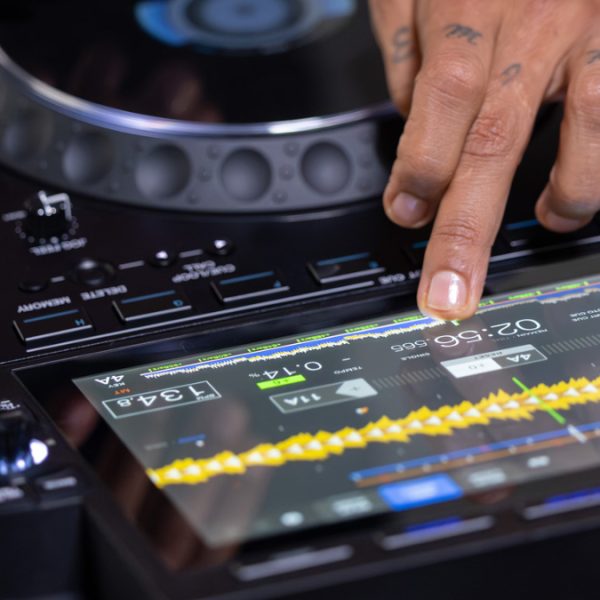What draws you to performing this way?
I think it’s the producer at heart. You have a hi-hat loop going on the left CDJ, you bring in the drums on the right, and then I can mess around with an acapella and come in with the second song, you know? It’s more like building blocks. You find Hot Cues and loops, and then build your set and evolve through big breakdowns—transform and transition. I’ve done sets with six CDJs. It’s just that performance-producer ego—you want to have fun. When you do so many shows you want to feed yourself, to have fun and not just do a programmed thing. Even on the main stages.
It sounds like your DJ sets sit pretty close to live performance.
That would be fair, for sure. I think once you’ve done the live performance stuff, you get used to having freedom. Also when I started doing that, in like 2016 or 17, it expanded my brain a little bit. I now can’t just use two songs and mix back and forth—it takes the fun out of it for me.
What led to the shift in 2016?
I did a festival run and added a live setup. And after I did those shows, I was like, there’s so much more to this, you know?
What are the key differences between how you mix now versus back in the day?
I still think it’s the same type and style because I pulled that with me from the vinyl days. I think it’s just more like a performance thing. I like to loop. I like live bootlegging. I like edits. I just love the vibe of it.
I feel like I have two personalities. I love the dark little rooms, I love the club. That’s how we grew up and that’s always gonna be there. Then coming to those big stages, obviously there are more nerves and bigger crowds but I work so much on the music that I play. 90% is my own stuff or Swedish House Mafia or my label. So if you’re comfortable with the music it feels very natural to play around with it. It’s not like I come to a festival and grab the Beatport top 10 and then I perform. I go into edits, remove a stem if it’s gonna conflict with a vocal. I can do whatever. I prepare a lot.
I can switch keys on synths and songs. I can go in and take the chords from another song. Every show it’s like 80% edited songs. I might go in and remove a snippet of a vocal because I want to fit in another vocal. That’s the benefit of rekordbox, it’s really easy to organize, it’s really easy for me to follow what I’m doing. I’ll be on a plane and I’m like, “I want to play this bassline with this song.” I go in and remove the bassline from the song, bounce it, put it into rekordbox.
Me and Solomon did a seven-hour back-to-back this summer in Ibiza. And I couldn’t obviously edit seven hours of music, that would take me a month. So in that situation it will be different, you would just do it on the fly. But when I do big festivals I can have all the freedom because I’ve made all the music.
Every time I perform people are like, “Oh, we need this song. We need this edit.” But they’re all exclusive to those shows, you know?
